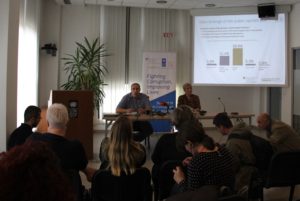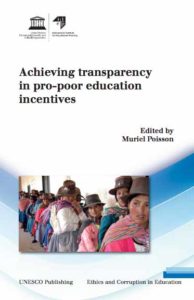Survey on Public Perceptions of Corruption in the Education Sector
28 May 2014

Analysis of findings from this survey on perceptions of corruption in the Kosovo education system are very enlightening, showing that the perception of corruption in this specific sector is similar as the overall perception of corruption in Kosovo, based on other studies conducted in the past.
The survey is designed to measure actual corruption levels in the education system in Kosovo by assessing the genuine perceptions of corruption among specific target groups that are in daily contact with education, the results provide useful insight into various aspects of corruption as a problem.
The study, aside from describing the level of awareness of the corruption phenomena, and its roots, also sheds light to the Kosovans’ good understanding of its various causes.




